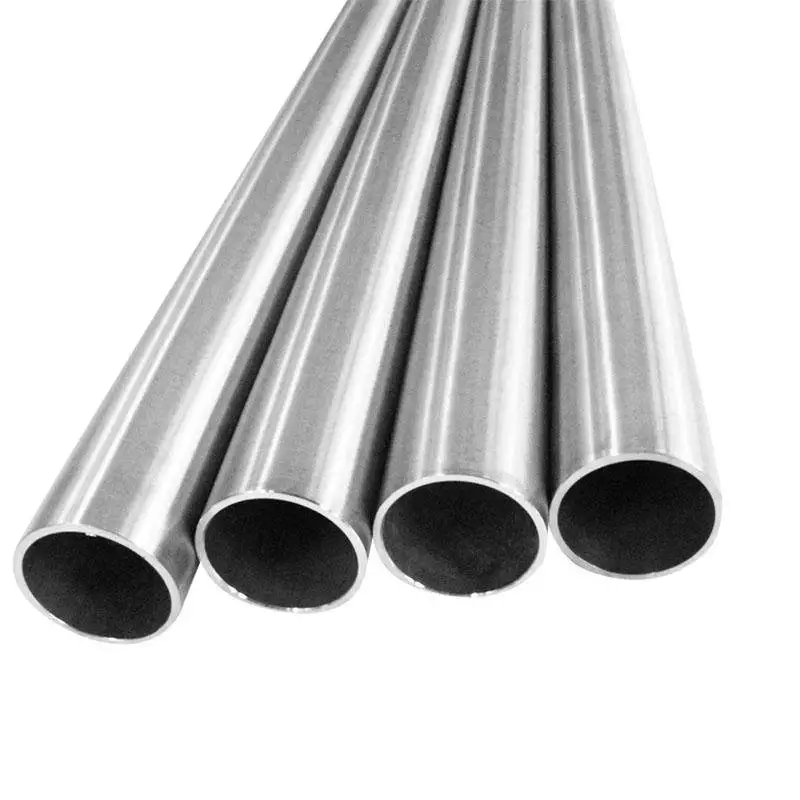
En el desafiante mundo de la exploración y producción de petróleo y gas, donde las condiciones extremas son la norma y no la excepción, la elección de los materiales puede marcar la diferencia entre el éxito y el fracaso. A la vanguardia de esta revolución de materiales se encuentran las tuberías de aleación a base de níquel, los héroes anónimos de la industria petrolera. Estas notables soluciones de ingeniería se han vuelto indispensables en una industria donde los ambientes corrosivos, las altas temperaturas y las inmensas presiones son desafíos cotidianos.
A medida que avanzamos en el mundo de las tuberías de aleación basadas en níquel, descubriremos las propiedades únicas que las hacen esenciales, exploran sus diversas aplicaciones en todo el sector de petróleo y gas, y comprenderemos por qué los ingenieros y los líderes de la industria recurren constantemente a este alto rendimiento materiales. Desde las profundidades de la perforación en alta mar hasta las complejidades de las operaciones de refinería, las tuberías de aleación a base de níquel están revolucionando silenciosamente cómo extraemos, transportamos y procesamos uno de los recursos más valiosos del mundo.
Únase a nosotros en este viaje mientras exploramos la ciencia, la ingeniería y las aplicaciones prácticas detrás de estos componentes cruciales de la infraestructura moderna de petróleo y gas. Ya sea que sea un profesional de la industria que busca expandir su conocimiento o un lector curioso interesado en las maravillas tecnológicas que impulsan nuestro mundo dependiente de la energía, esta guía integral de las tuberías de aleaciones basadas en níquel en la industria del petróleo promete ser informativo e esclarecedor.
- Introducción
Las tuberías de aleación a base de níquel juegan un papel crucial en la industria del petróleo y el gas. Estos materiales de alto rendimiento mantienen excelentes propiedades en condiciones extremas, haciéndolos componentes indispensables en los procesos de extracción y transporte de aceite. Este artículo proporcionará una introducción detallada a las características, aplicaciones, tipos principales y consideraciones de selección de las tuberías de aleación basadas en níquel utilizadas en la industria petrolera. - Características de las tuberías de aleación de níquel
El uso generalizado de tuberías de aleación de níquel en la industria del petróleo se debe principalmente a sus excelentes propiedades físicas y químicas. La siguiente tabla resume las características clave de las tuberías de aleación de níquel:
| Característica | Descripción | Término |
|---|---|---|
| Resistencia a la corrosión | Excelente resistencia a los ácidos, álcalis y corrosión de agua salada | Resistencia a la corrosión |
| Rendimiento de alta temperatura | Mantiene la fuerza y la estabilidad en ambientes de alta temperatura. | Rendimiento de alta temperatura |
| Resistencia mecánica | Excelente resistencia a la tracción y a la compresión. | Resistencia mecánica |
| Soldabilidad | Buenas propiedades de soldadura, facilitando la instalación y el mantenimiento. | Soldabilidad |
| Resistencia al desgaste | Capacidad de resistir el desgaste y la erosión. | Resistencia al desgaste |
| Bajo coeficiente de expansión térmica | Mantiene la estabilidad dimensional durante los cambios de temperatura. | Baja expansión térmica |
- Aplicaciones en la Industria Petrolera
Los tubos de aleación de níquel tienen una amplia gama de aplicaciones en la industria petrolera, que incluyen:
Equipo de perforación:
- Tubos de perforación
- Caja
- Tubería
Equipo de producción:
- Arboles De Navidad
- Válvulas de seguridad
- Separadores
Sistemas de transporte:
- Oleoductos
- Tuberías submarinas
Equipos de refinería:
- Intercambiadores de calor
- reactores
- Columnas de destilación
- Principales tipos de aleaciones de níquel
Existen varios tipos de tuberías de aleación de níquel comúnmente utilizadas en la industria petrolera, cada una con propiedades y aplicaciones específicas. La siguiente tabla enumera algunos de los principales tipos de aleación de níquel y sus características:
| Nombre de aleación | Componentes principales | Características | Aplicaciones principales |
|---|---|---|---|
| Inconel 625 | In-CR-I | Excelente resistencia a la corrosión, alta resistencia | Plataformas de petróleo en alta mar, Equipo de procesamiento de productos químicos |
| Incoloy 825 | FE-CR | Buena resistencia al agrietamiento de la corrosión por estrés por cloruro | Pozos ácidos de petróleo y gas, sistemas de tratamiento de agua de mar |
| Hastelloy C-276 | In-icr | Resistencia superior a varios entornos corrosivos | Pozos de alta temperatura y alta presión, procesamiento de gases ácidos |
| Monels 400 | Ni-cu | Excelente resistencia a la corrosión del agua de mar | Sistemas de enfriamiento de agua de mar, equipos de desalinización |
| Aleación 20 | Ni-cr-cu | Buena resistencia a la corrosión del ácido sulfúrico | Equipo de procesamiento de ácido sulfúrico, producción de ácido fosfórico |
- Consideraciones de selección
Al seleccionar tuberías de aleación de níquel apropiadas para aplicaciones petroleras, se deben considerar varios factores:
Entorno operativo:
- Rango de temperatura
- Condiciones de presión
- Medios corrosivos
Requisitos de propiedad mecánica:
- Fuerza
- Tenacidad
- Rendimiento de fatiga
Factores económicos:
- Costo inicial
- Costo del ciclo de vida
- Requisitos de mantenimiento
Reglamentos y Estándares:
- Estándares de la industria
- Regulaciones Ambientales
- Requisitos de seguridad
- Fabricación y procesamiento
La fabricación y el procesamiento de tuberías de aleación de níquel afectan significativamente su rendimiento final. Los principales métodos de fabricación incluyen:
Fabricación de tubos sin costura:
- Extrusión en caliente
- Dibujo en frío
Fabricación de tubos soldados:
- Soldadura longitudinal
- Soldadura en espiral
Tratamiento térmico:
- Recocido
- Tratamiento de solución
Tratamiento superficial:
- Decapado
- Pasivación
- Control de Calidad e Inspección
Para garantizar que las tuberías de aleación de níquel cumplan con los estrictos requisitos de la industria petrolera, es necesario un control de calidad e inspección integrales:
| Método de inspección | Objetivo | Término |
|---|---|---|
| Pruebas ultrasónicas | Detectar defectos internos | Pruebas ultrasónicas (UT) |
| Pruebas radiográficas | Comprobar la calidad de la soldadura | Prueba radiográfica (RT) |
| Inspección de partículas magnéticas | Detectar defectos superficiales y cercanos a la superficie | Inspección de partículas magnéticas (MPI) |
| Análisis de composición química | Verificar la composición del material | Análisis de composición química |
| Prueba de propiedad mecánica | Confirmar la fuerza y la dureza | Prueba de propiedad mecánica |
| Prueba de resistencia a la corrosión | Evaluar la capacidad de resistencia a la corrosión | Prueba de resistencia a la corrosión |
- Conclusión
Las tuberías de aleación a base de níquel juegan un papel clave en la industria del petróleo y el gas debido a su excelente rendimiento. A través de la selección adecuada y el uso correcto de estos materiales de alto rendimiento, la confiabilidad del equipo y la vida útil pueden mejorarse significativamente, reducir los costos de mantenimiento y las operaciones seguras garantizadas en entornos extremos. A medida que las tecnologías de extracción de petróleo continúan avanzando y los requisitos ambientales se vuelven cada vez más estrictos, las tuberías de aleación de níquel continuarán desempeñando un papel importante en la industria y pueden conducir al desarrollo y la aplicación de aleaciones más innovadoras.
